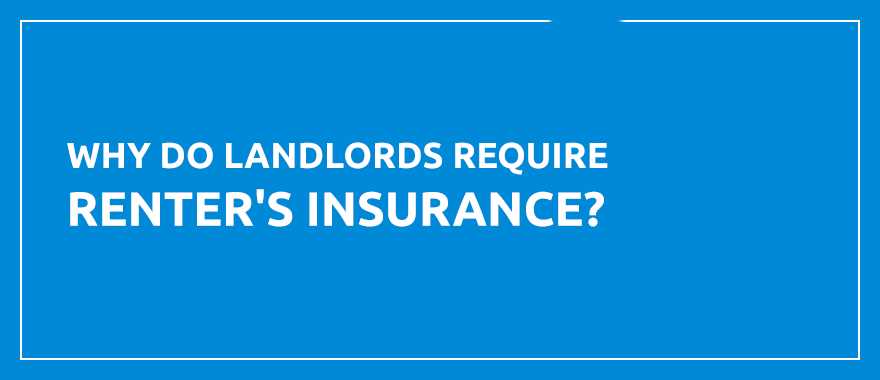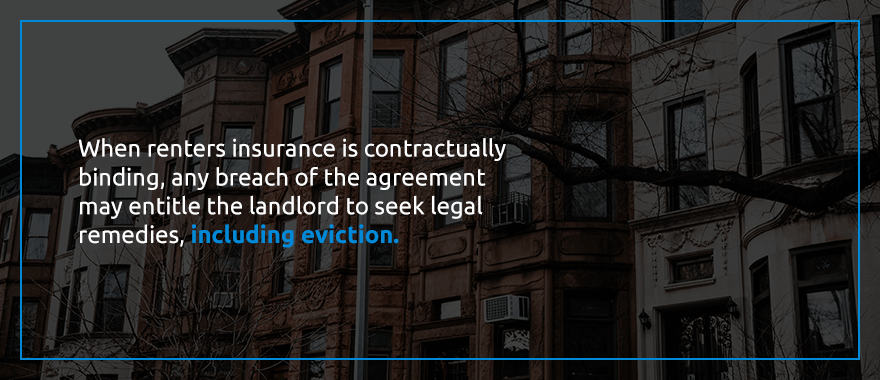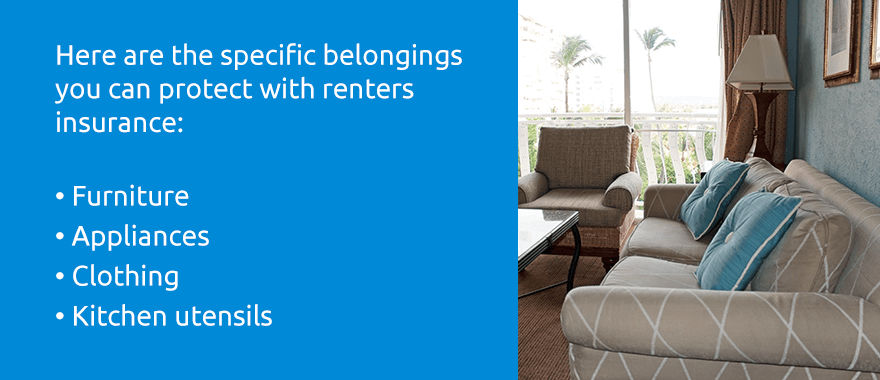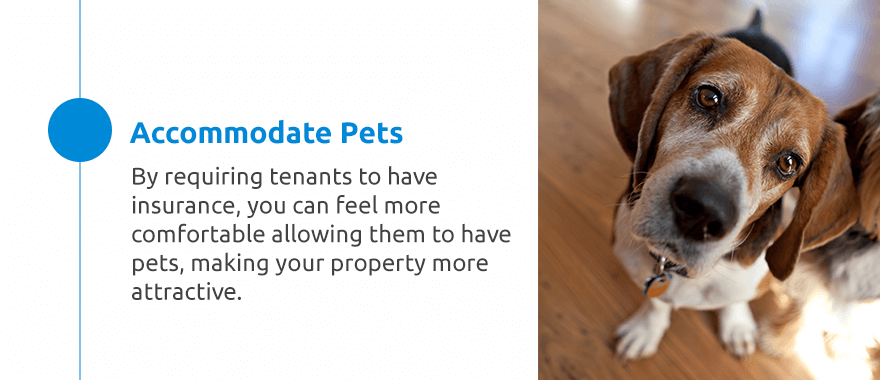
Renters insurance is a safety net that offers protection against property loss and liabilities, depending on the level of coverage. In other words, renters insurance is an affordable way to protect your belongings against damage or theft, which are increasing in frequency.
Close to one-third of households in Missouri are renters — 32.88%, to be exact. The stats match the number of questions we receive concerning renters insurance. This article provides a comprehensive guide for renters and landlords who need to learn more. Let’s get started.
For your convenience, this section will answer some of the most frequently asked questions about renters insurance:
First, no state or federal laws compel renters and landlords to secure renters insurance. However, your landlord may make it a prerequisite in the lease, rental or tenancy contract. The agreement could specify which type of coverage you must secure.

You could also risk eviction if your landlord requires renters insurance and you don’t have a policy. When renters insurance is contractually binding, any breach of the agreement may entitle the landlord to seek legal remedies, including eviction. In any case, renters insurance benefits renters and landlords, even when it isn’t mandatory.
Primarily, renters insurance protects your property while you are a renter. It covers various losses, including those that result from:
Renters insurance does not cover every loss or damage. For example, floods and earthquakes are generally not part of the agreement.

Here are the specific belongings you can protect with renters insurance:
You may negotiate with your insurer for additional coverage, including personal liability, loss of use and medical expenses. Personal liability takes care of legal expenses when someone sues you for bodily injury or property damage in or out of your home. Loss of use takes care of additional expenses reasonably incurred when your apartment is not fit to live in at any time. The coverage may also take care of medical expenses directly related to a fault from the property. Additionally, you may include items generally excluded from the list.
Renters insurance policies offer many benefits. A policy covers you against property loss and liability, even when you are out of town. Let’s break down these advantages in more detail.
Renters insurance primarily aims to safeguard your belongings against damage and theft. When you lose your property, the insurance company compensates you or pays for the loss. For example, you may recover the monetary value of stolen items if you insure your property against theft.
Renters insurance may cover liability when someone gets injured on your premises, primarily if the injury occurs due to your negligence. The coverage could include medical and legal expenses that would otherwise fall squarely on your shoulders.
Worrying about your home’s safety when you’re away on a trip can dampen your excitement. With renters insurance, there’s less to stress about. The insurance company will take care of any losses that may happen while you’re out of town.
Thieves who break into homes are usually after big-ticket items like TVs, laptops, video game consoles and jewelry. Paying out of pocket to replace all these items can cost thousands of dollars — a heavy burden on top of the emotional impact of being a robbery victim. Though it’s impossible to put a price tag on your peace of mind, a renters insurance policy is much more affordable than recovering stolen belongings on your own.
If your apartment requires an extensive renovation that forces you to move out, renters insurance may cover the reasonable expenses you incur while you need temporary housing, including necessities such as meals and a hotel stay.
Requiring renters insurance in a lease benefits landlords by reducing their liability and preventing them from paying for damages. Renters insurance also takes care of relocation costs, helps landlords determine which tenant is reliable and makes it easier to accommodate tenants with pets. Let’s explain these further.
Some tenants may attempt to strategically sue their landlords. Possible outcomes of this situation include:
Renters insurance may mitigate or completely relieve legal liability. For example, if a visitor is injured on premises you own, they may institute legal action against you. If the lawsuit is successful, you can rely on your insurance to cover the visitor’s losses, which may include medical bills and pain incurred.
Tenants may strive to hold their landlords responsible for losses, and they can succeed sometimes. When your tenant has renters insurance, it reduces your daily worries in the event of damage.
A contract governs the landlord-tenant relationship. This contract requires the landlord to provide accommodation for the tenant for a defined period subject to specific conditions, such as rent payment. If the landlord cannot fulfill their side of the deal, the tenant might require compensation — renters insurance may take care of that.
By requiring tenants to obtain renters insurance, you can determine which potential renters are likely to be the most responsible. Typically, a willingness to follow all the terms of a rental agreement indicates someone who will also pay their rent on time and be a good neighbor who respects your property.

Many landlords are unwilling to allow pets on their properties, but dedicated pet parents know caring for an animal can improve their quality of life. A renters insurance policy may cover any damages or injuries pets like dogs might cause on your premises. By requiring tenants to have insurance, you can feel more comfortable allowing them to have pets, making your property more attractive.
The worth of renters insurance coverage depends on several factors, including the type of coverage you require, your deductibles, your location and the exposure to damages or loss, the property’s physical state and your financial history. We’ll consider each type of coverage and what you need to keep in mind.
Determining your property’s value is an ideal starting point for personal property coverage. Next, check whether the policy reimburses the replacement or the actual cash value. The amount you receive for the actual value may be lower than the replacement value. Also, remember that property depreciates over time.
When inventorying your belongings, note how much it would cost to replace each item. Then, choose coverage that meets or exceeds your total property value. So, for instance, if the total value of your possessions is $20,000, the coverage must be at least that amount. The risk of choosing a policy that covers less is that in the rare case where you lose everything, you may not recover 100% of your items.
You may need additional coverage for things a standard policy does not cover, such as expensive jewelry, watches and artwork. Protecting these properties shifts the expense onto the insurer in case of damage or loss.
Having personal liability coverage as part of your renters insurance policy is essential to protect you financially in case of injury or property damage you are legally responsible for. For example, if someone trips and falls inside your home and breaks their arm, they may expect you to pay their medical bills.
The amount of coverage you select will determine how much your insurance company will pay in case of a lawsuit. The average award for personal liability on properties is $90,000, but judges usually consider several factors before awarding damages. If a personal liability claim exceeds your coverage, you’ll have to pay the extra costs out of pocket.
You may also want to buy an excess liability or umbrella policy, which provides broader coverage and higher limits.
If something makes your home temporarily uninhabitable, you’ll have to look for temporary lodging. Additional living expenses coverage takes care of reasonable costs you incur in this case. For instance, you may need to stay at a hotel after your home floods and you have a repair crew in to fix the damage. How much you pay as a premium depends primarily on your location. For example, you may opt for extra coverage if your city’s average short-term rent or hotel bills are high.
Pet liability is coverage you may secure in addition to your renters insurance. It’s a straightforward way of protecting your wallet when your pet injures someone or damages their property.
Depending on the nature and extent of bodily injury or damage to property, pet liability may cost you thousands of dollars. Select coverage that is likely to cater to every expense. For instance, if your coverage is $35,000 and someone files a claim worth $60,000, you’ll need to pay the difference of $25,000. The premium may also depend on your pet’s breed and susceptibility to causing personal injuries or damages.
To paint a clearer picture, let’s consider some stats.
According to statistics from the American Veterinary Medical Association, U.S. households have nearly 85 million dogs, and about 4.5 million people experience dog bites annually. In 2020, insurance companies paid $853.7 million for dog bites and injury claims. The average claim payment in 2020 was $50,245, a 12.3% increase over the previous year, despite fewer claims.
Renters insurance is generally affordable, but you may still look for ways to save a couple of dollars. Most insurance companies provide various discounts for renters insurance. For example, you might qualify for a reduced rate if you set up automatic monthly payments from your checking account or pay for your entire year’s premium upfront. Insurers may also offer exclusive discounts for people such as active-duty or retired first responders or military service members.
Combining multiple policies is another savvy way to save money. For example, if you already have auto and life insurance with the same insurer, you may negotiate for lower premiums on your renters insurance. Other ways to pay less are by improving your credit score or increasing your deductible.
Additionally, remember that your location also determines your premiums. Some areas have high crime rates or experience frequent natural disasters. People who live in these places can generally expect to pay more for insurance because they are more likely to file a claim. However, your insurer may offer lower premiums if you have implemented specific safety precautions such as installing a home security system. In doing so, you can show your insurance company that you’ve taken a proactive step to reduce your chances of loss or damage from a home break-in.
Landlords generally require proof of renters insurance coverage to satisfy the terms of a rental contract. Mostly, you only have to send a copy of the policy hard copy or by email. The insurance policy’s declarations pages set out the details for your coverage, including your name, the insurance provider, the amount of coverage and the policy’s number. Also, you can ask your insurer to contact your landlord directly and inform them of the policy.
Alternatively, you may request the insurance company to add your landlord as an interested party. In that case, the insurer will reach out to your landlord when your policy ends. For some landlords, verbal confirmation is sufficient.
There’s more to learn about renters insurance, including what an interested party is and how to secure renters insurance. This information is to help you prepare adequately before taking the next steps.
An interested party is someone you can add to your insurance policy to notify them when you buy the policy or when it lapses or terminates unexpectedly. In renters insurance, the interested party is likely to be your landlord. Making your landlord an interested party — also called a “third-party designee” or an “additional interested” — helps them confirm that you have obtained the policy according to their recommendations.
By making your landlord an interested party, you are not giving them permission to change your insurance policy. It only confirms you have secure renters insurance. Insurance companies have different ways of adding interested parties to renters insurance. Generally, you may inform your insurer verbally, send an email request or add the interested party directly to your account online.
Securing renters insurance is generally not challenging if you have all the correct information. First, inventory your property to get an accurate estimate of its total replacement value. Consider whether you need to purchase additional coverage for high-end, luxury items that are usually excluded from renters insurance. It’s wise to take photographs or video recordings of belongings such as appliances, and you should also write down their serial numbers and keep that information somewhere secure.
Second, do your research to know which insurance company is best for you. Besides reading online reviews, you can ask family and friends for their recommendations. Third, make further inquiries with the insurer and begin the process. Finally, choose a payment plan and secure the necessary documents to complete the process.
Renters insurance is one of the best ways to protect your belongings and reduce personal liability. It may also cater to additional expenses and injuries or damages caused by your pets. Though no state or federal laws mandate you to secure renters insurance, your landlord may require you to purchase a policy in the rental contract. To reduce your insurance premium, find out if your insurer offers discounts. Also, increase your deductibles and improve your credit score to pay less.
David Pope Insurance Services, LLC is a local, family-owned insurance provider offering our Missouri customers affordable premiums. We have locations in Union and St. Clair. Our priority is to understand your needs and help you plan adequately. Contact us to learn more and request a quote today!